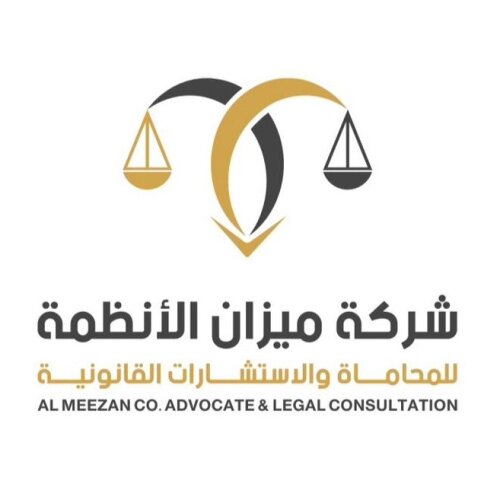Best Public-Private Partnerships (PPP) Lawyers in Makkah
Share your needs with us, get contacted by law firms.
Free. Takes 2 min.
List of the best lawyers in Makkah, Saudi Arabia
About Public-Private Partnerships (PPP) Law in Makkah, Saudi Arabia
Public-Private Partnerships, commonly referred to as PPPs, are collaborative projects between government entities and private sector partners. In Makkah, Saudi Arabia, PPPs are increasingly used to deliver large infrastructure projects, social services, and public utilities. These partnerships combine public oversight with private sector expertise and capital, aiming to improve efficiency, innovation, and resource allocation in key sectors such as transportation, healthcare, and municipal services. The government of Saudi Arabia, guided by Vision 2030, actively promotes PPPs as a strategy to diversify the economy and enhance the quality of public services in Makkah and other regions.
Why You May Need a Lawyer
Legal expertise is essential when navigating the complexities of PPPs in Makkah. Common situations where legal help is often required include:
- Drafting, reviewing, or negotiating PPP contracts or project agreements
- Understanding the regulatory framework and compliance requirements
- Resolving disputes between public and private partners
- Managing risk related to financing, performance, or asset ownership
- Securing necessary licences, permits, or approvals for PPP projects
- Guaranteeing compliance with local content and Saudization initiatives
- Protecting intellectual property and technology involved in PPP projects
- Advising on tender processes and public procurement regulations
- Dealing with land rights, expropriation issues, and permits in Makkah
- Understanding tax implications and incentives offered in PPP arrangements
Engaging a lawyer experienced in PPPs can help prevent costly mistakes, ensure compliance, and protect your interests throughout the life of the partnership.
Local Laws Overview
Several key legal frameworks govern PPPs in Makkah, reflecting national priorities and local needs:
- The Private Sector Participation (PSP) Law provides the foundation for PPPs, governing contracts, risk allocation, and approval procedures
- Implementing Regulations for PSP Law outline practical steps for launching PPP initiatives, including tender and award processes
- Special regulations may apply to sectors such as transport, water, energy, or waste management
- The National Center for Privatization and PPP (NCP) issues guidelines and monitors compliance for PPP projects across the Kingdom
- Public procurement rules, especially the Tenders and Procurement Law, ensure transparency and competition in project awards
- Local Makkah municipality bylaws may affect permits, zoning, environmental impact assessments, and operational standards
- Saudi labor laws, including Saudization quotas, shape workforce considerations on PPP projects
- Saudi Arabian tax and foreign investment regulations help define financial and ownership structures in PPP arrangements
Familiarity with these regulations is crucial for successfully structuring PPPs in Makkah. Local legal counsel can provide practical guidance on navigating these overlapping frameworks.
Frequently Asked Questions
What is a Public-Private Partnership (PPP)?
A PPP is a structured collaboration in which a government agency and a private company jointly finance, build, operate, or maintain public sector projects or services.
Are PPPs allowed in all sectors in Makkah?
Most infrastructure and service sectors in Makkah are open to PPPs, but certain sensitive industries may have restrictions or require special approvals.
Who oversees PPP projects in Saudi Arabia?
The National Center for Privatization and PPP (NCP) is the primary government body that oversees and regulates PPP projects throughout Saudi Arabia, including in Makkah.
Can foreign investors participate in PPPs in Makkah?
Yes, foreign investors can participate in PPP projects, but must comply with Saudi regulations for foreign investment and local content requirements.
How are PPP projects awarded?
PPP projects are generally awarded through a competitive public tender process, designed to ensure transparency and select the best value proposals.
What kind of contracts are typically used in PPPs?
Common types of PPP contracts include Build-Operate-Transfer (BOT), Build-Own-Operate (BOO), and lease or management agreements, depending on project scope and risk allocation.
What legal risks should PPP participants consider?
Key risks include regulatory changes, contract enforcement challenges, construction and operational risks, funding shortfalls, and potential disputes over performance obligations.
Are there special tax considerations for PPPs?
PPP projects may be eligible for specific incentives or exemptions, but tax treatment depends on project structure, ownership, and compliance with relevant Saudi tax laws.
What dispute resolution options are available?
Disputes in PPP projects may be resolved through negotiation, mediation, or arbitration, depending on contractual provisions and Saudi legal frameworks.
How can I find a qualified PPP lawyer in Makkah?
Seek law firms or legal advisors with demonstrated experience in infrastructure or PPP law, as well as familiarity with the local regulatory environment in Makkah.
Additional Resources
For further information and assistance regarding PPPs in Makkah, consider consulting these resources:
- National Center for Privatization and PPP (NCP) - Key regulator and resource center for PPP projects in Saudi Arabia
- Saudi Ministry of Finance - Provides guidance on PPP policy, public procurement, and financial incentives
- Makkah Municipality - Local authority for permits, compliance, and zoning issues related to PPP projects
- Saudi Arabian General Investment Authority (SAGIA) - Oversees foreign investment regulations applicable to PPPs
- Reputable law firms in Makkah with a focus on infrastructure, commercial, or public law
- Industry associations such as the Saudi Contractors Authority and local chambers of commerce
Next Steps
If you are considering involvement in a Public-Private Partnership in Makkah, start by clearly defining your project objectives and gathering all relevant documentation. You should:
- Consult with a legal professional specializing in PPP law as early as possible
- Conduct a preliminary legal feasibility assessment to identify regulatory, financial, or operational risks
- Reach out to relevant government bodies for guidance on current regulations and approval procedures
- Prepare clear records of communications, contracts, and agreements for compliance and dispute resolution purposes
- Stay informed of legal updates that may affect your PPP project or its structure
Taking proactive legal steps will greatly enhance your chances of successful, compliant, and profitable PPP engagement in Makkah.
Lawzana helps you find the best lawyers and law firms in Makkah through a curated and pre-screened list of qualified legal professionals. Our platform offers rankings and detailed profiles of attorneys and law firms, allowing you to compare based on practice areas, including Public-Private Partnerships (PPP), experience, and client feedback.
Each profile includes a description of the firm's areas of practice, client reviews, team members and partners, year of establishment, spoken languages, office locations, contact information, social media presence, and any published articles or resources. Most firms on our platform speak English and are experienced in both local and international legal matters.
Get a quote from top-rated law firms in Makkah, Saudi Arabia — quickly, securely, and without unnecessary hassle.
Disclaimer:
The information provided on this page is for general informational purposes only and does not constitute legal advice. While we strive to ensure the accuracy and relevance of the content, legal information may change over time, and interpretations of the law can vary. You should always consult with a qualified legal professional for advice specific to your situation.
We disclaim all liability for actions taken or not taken based on the content of this page. If you believe any information is incorrect or outdated, please contact us, and we will review and update it where appropriate.












